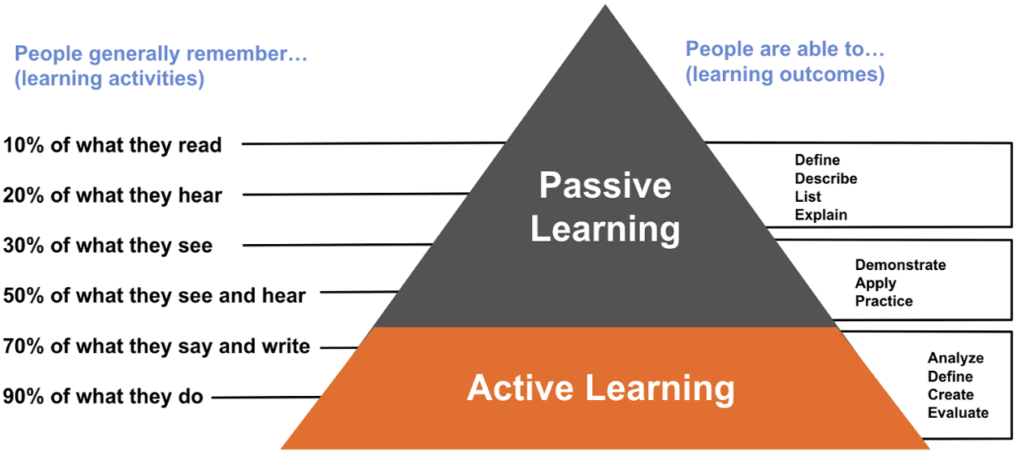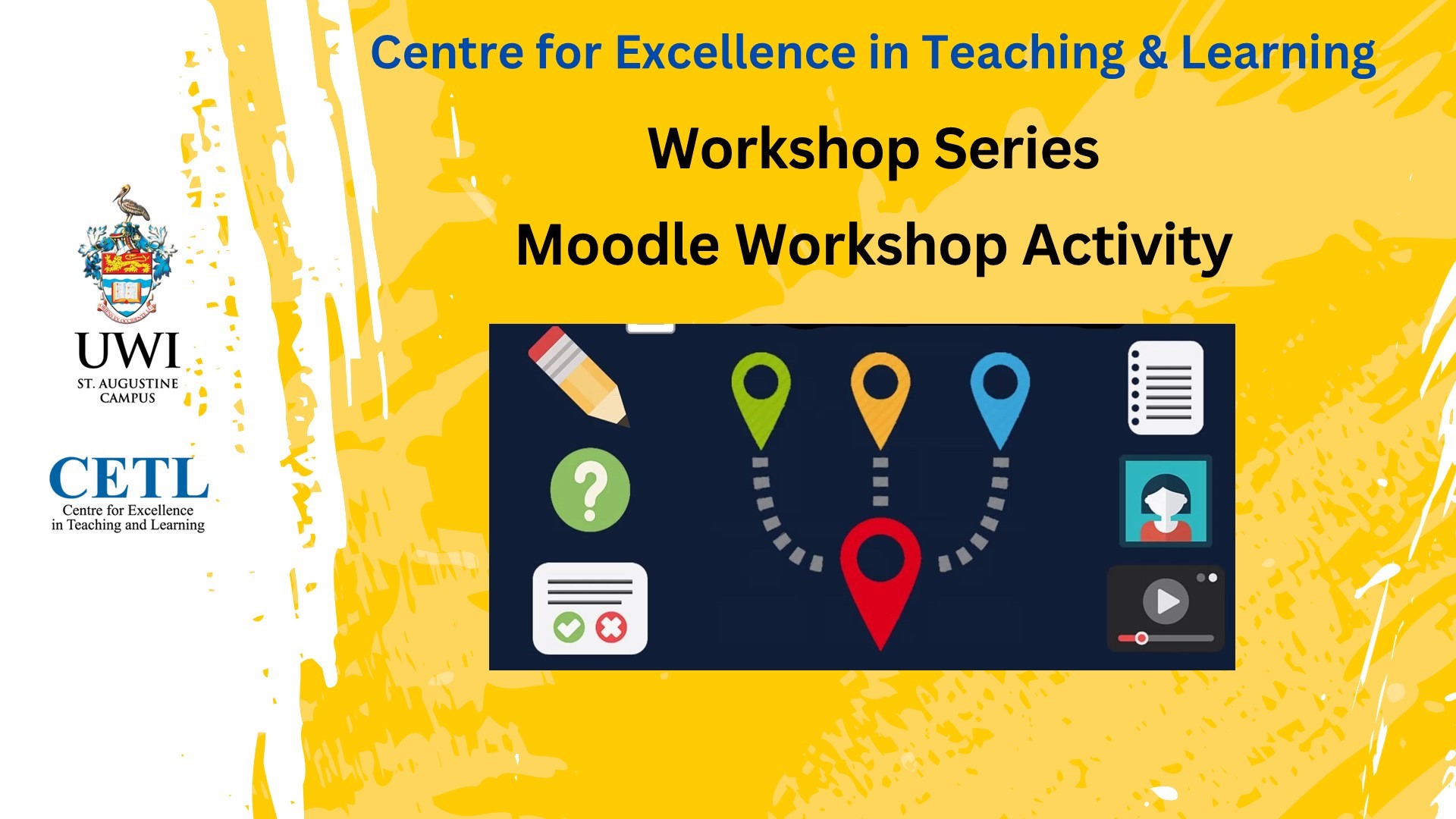
Welcome back to our Tuesday Teaching Tips (TTT) Blog.
With a month into the semester, many of us have now settled nicely into our courses along with most of our students, resolving issues with course access and registration. The CETL is happy to assist you in this process, with our offerings of webinars, workshops and other offerings, including our TTT blog site. Thus far for the semester, we have explored a range of topics including myeLearning access and support, myeLearning resources, and Universal Design for Learning (UDL). This week, we want to take a closer look at #ActiveLearning
A – What is Active Learning?
Otherwise known as participatory teaching and learning, active learning is a teaching method that allows learners to be actively involved in their learning experiences. It is an umbrella approach that encourages learners to think, explore, discuss and analyze information. In so doing, it is essentially a paradigm shift away from the more traditional teacher-centred approach, as learners are given opportunities to create things, practice skills, solve problems, or synthesize and explain ideas in their own words. In this regard, timely feedback is essential whether it is from their peers or the educational practitioner/facilitator. Educational research has consistently shown that the incorporation of active learning strategies into Higher Education courses substantively enhances the learning experiences for students (Freeman et al., 2014; Theobald et al., 2020).
B – Strategies and Benefits of Active Learning
One of the good things about active learning is the many ways in which it can be easily implemented. It is by no means an absolute, “one-size-fits-all” approach, but is customizable to your various instructional contexts. The following are some active learning strategies you may consider:
- Think-pair-share exercises
- Role-Play/Simulations
- Game-Based Learning
- Class/group Discussions
- Minute Paper
- Experiential Learning
- Problem-Based Learning
- Concept Mapping
The aforementioned strategies are quite easy to implement in almost any instructional context. Moreover, these strategies reap substantive impacts/benefits especially for the learners. Perhaps one reason active learning is so heavily advocated among the educational landscape is due to the myriad of easily attainable benefits it provides. These benefits include:
- Improved retention
- Development of critical thinking skills
- Improved collaboration and communication skills
- Increased engagement and motivation
- Better real-world application
- Removal of learning barriers
- Learn more in less time and effort
- Development of creative thinking and problem-solving skills
C – myeLearning Activities and The Lesson Activity
In addition to the provision of course resources or materials, Activities provide a more engaging way to facilitate students’ assessments, interaction, and active learning. myeLearning activities refer to any task required by students usually for assessment or revision purposes. These activities may include quizzes, essays, projects, discussion fora, and even H5P activities. One activity that has substantive potential but is sometimes under-utilized is the Workshop Activity. In myeLearning, the workshop activity is a tool for creating interactive and collaborative learning experiences in your online/blended courses. This activity enables the collection, review and peer assessment of students’ work. By the end of the Workshop Activity, students obtain two grades – a grade for their submission and a grade for their assessment of their peers’ submissions. Both grades are recorded in the gradebook automatically.
Additionally, you may be interested in our upcoming training session, Moodle Workshop Activity, scheduled for Tuesday 11th February, 2025 at 10:00 AM. This two-hour online will orient you to this myeLearning activitity which you can use in your courses for increased student engagement and active learning. You will explore the essential features of the Workshop activity, from configuration to implementation. Additionally, you will learn to configure key settings that personalize learning paths and ensure effective assessment of learner progress. To register for this session, please click on the following image or link:
Register for our Workshops here
We hope the aforementioned resources are helpful.
Should you need any further assistance, please feel free to contact us.
Regards,
The Centre for Excellence in Teaching & Learning (CETL),
The University of the West Indies (UWI),
St. Augustine.


